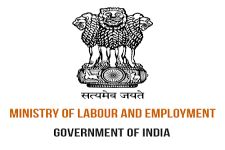BRICS Labour & Employment Ministerial Declaration adopted
Published: Sep 11, 2024

By TIOLCorplaws News Service
NEW DELHI, SEP 11, 2024: SECRETARY, Ministry of Labour & Employment, Sumita Dawra, attended the BRICS Labour and Employment Ministerial Meeting held under the Russian Presidency on 9-10 Sept, 2024 in the city of Sochi, Russia. The Ministers/ Heads of Delegation of the member countries viz. Brazil, Russia, India, China and South Africa participated in the meeting. Ministers/Heads of Delegation of the new members of BRICS Partnership: Egypt, Ethiopia, Iran, and the United Arab Emirates also attended the meeting.
Discussions were held on four priority issues namely, (i) development of a system of vocational guidance, skills training and lifelong professional education for the entire population, (ii) platform employment and the challenges of its regulation, (iii) ensuring safety and healthy working environment and social protection for workers, (iv) development of social support for the BRICS countries.
Secretary elucidated the progressive steps taken by Government of India, highlighting the comprehensive scheme for internship opportunities for India youth, integration of National Career Service (NCS) portal with Skill India Digital Hub (SIDH) for integration of skilling and employment, role of Sector Skill Councils in training and education of youth and adults in enhancing employability, and e-Shram for access to skills portal by informal sector workers.
Indian delegation informed that the Code on Social Security is a significant step forward by the Government of India as it defines ‘gig' and ‘platform' workers for the first time, and envisages providing social security benefits to them, thereby formalizing these workers by providing them with the much-needed social protection.
Government of India's strategies to mitigate risks associated with occupational hazards and promoting a healthier workforce were highlighted. Accidental insurance under ESIC (Employees' State Insurance Corporation) was showcased as a pivotal safeguard for the workforce in India, ensuring financial security in the face of unforeseen accidents or injuries on the job, encompassing crucial coverage of medical expenses, disability benefits and compensation in case of fatalities due to workplace accidents, to ensure a secure and dignified livelihood for India's labour force.
On the matter of social security for citizens of BRICS countries, the strengths brought to formal labour force on account of schemes of Employees State Insurance Corporation (ESIC) and Employees Provident Fund Organisation (EPFO) was highlighted. ESIC provides medical, sickness and other benefits, to its members; while EPFO is one of the world's largest social security funds providing pensionary and provident fund related benefits to labour.
EShram with a strong membership of 300 million unorganised sector workers, and India's vision to develop it as a ‘one-stop-shop' for access to social security benefits by the informal sector and self employed workers was explained.
Besides several important schemes promoting labour welfare, such as Pradhan Mantri Awas Yojana for affordable housing, Pradhan Mantri Kaushal Vikas Yojana to enhance employability through skill development, etc were highlighted.
India's impressive coverage of 347 million under Ayushman Bharat healthcare cards was also showcased as the world's largest government-funded healthcare programme.
India's remarkable transformation in its approach to financial inclusion and social welfare, by prioritising access to financial services and providing safety nets for vulnerable populations, whereby Government of India has empowered millions of individuals, thereby fostering an inclusive society, was emphasised. Member states were also urged by India to work together to ensure that universal social protection becomes a reality for the citizens in BRICS countries.
One of the significant outcomes of the aforesaid meeting was the adoption of the BRICS Labour & Employment Ministers' Declaration. The Declaration recognized the need for developing: comprehensive strategies for life-long learning, vocational guidance, continuous professional education; modernization of employment services; ensuring safe working conditions; welfare of the platform workers and bolstering robust social support mechanisms.




